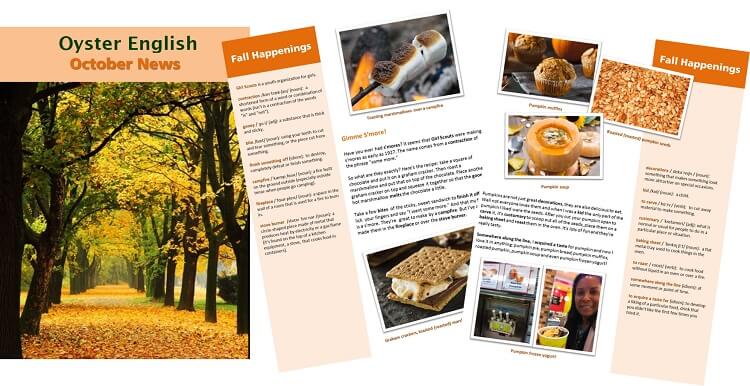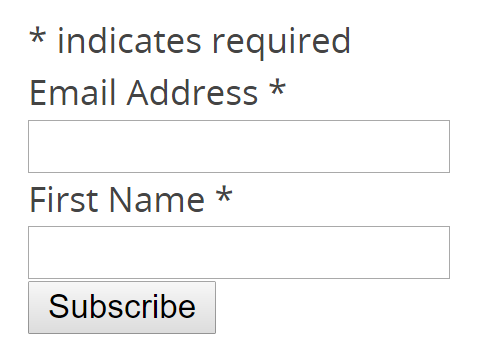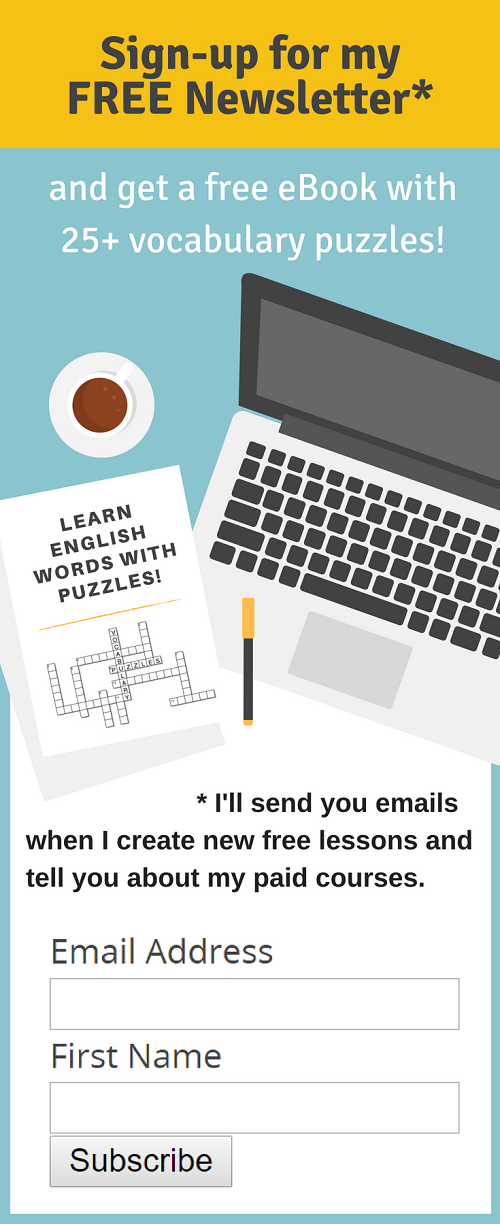Learn How to Read in English
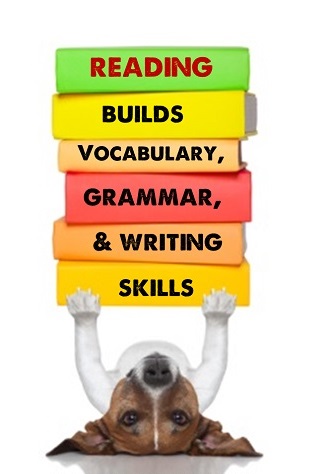
Can you help me learn how to read English?
I recently received an email from a visitor who had this question.
He wanted to know some tips on how to improve his reading skills.
Before I answer that question, I'd like to just confirm that reading is a really excellent way to improve your English. It's worth the time to develop this skill because reading will help your other English language skills as well.
One of the main advantages is that when you read you develop your vocabulary.
And, you do this without having to look up every word in your dictionary.
This is because it's possible to learn the meaning of a new word by understanding the context (or the surrounding text and information). This is true for any language, not just English.
Another advantage of reading is that it helps you see grammar used correctly and good sentence structures. In this way reading can help your writing skills.
Reading is a great activity because there's always something that you can find of interest, whether that's a comic book, newspaper, novel, magazines or just reading your favorite websites.
Even people who say they don't "like" to read spend a large part of their day on this activity.
Now that we can agree reading is very valuable let's move on to ways we can learn how to read English.
Ready? Let's get started!
Learn how to read English tip #1: Read daily

As I just mentioned, there are so many different ways for you to read English.
With the Internet you can read magazines, newspapers or download e-books with the click of a mouse.
The most important thing is to actually read each day.
Just do it!
It is far more important to read something every day than it is to do a lot of reading only once or twice a week. If you do it daily you're going to develop this great habit and it will become easier and easier to do.
If you can develop a routine for your reading, this is even better.
Perhaps you try to read some of the news headlines and one top story each morning while drinking your coffee. Maybe you could read your horoscope every morning in English.
You could log on to one of your favorite English language websites or follow an English speaker's blog.
Just do it every single day.
Learn how to read English tip # 2: Try some reading materials created for ESL learners
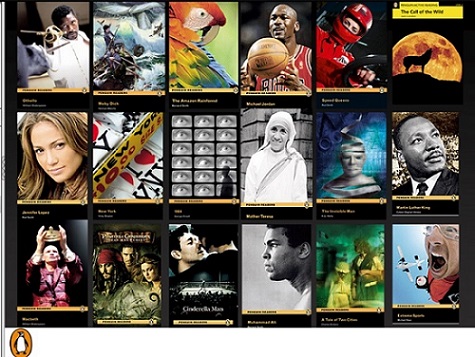
I'm a HUGE fan of graded readers!
There's a huge selection of these books and they're very affordable.
Most also come with a CD so you can hear the author read the story as well, which helps with pronunciation. Graded readers are "graded" for English learners at different learning levels.
The grammar as well as the vocabulary are written at beginning, intermediate and advanced levels depending on the book.
As I noted above, it's easy to learn new vocabulary when you understand the context and words around a new word.
Graded readers are specially designed to help learners develop their vocabulary in this way. They often provide some definitions for some of the more difficult words.
You can read more about graded readers here.
Learn how to read English tip #3: Keep a vocabulary journal
I highly recommend that you keep a notebook or journal to write down new words that you learn.
Have your dictionary ready so that you can look up new words.
Please note that I don't recommend that you look up every word that you don't know in a text that you read!!

If you do this, you're going to hate reading and it's not important to know every word.
Just remember that as you continue to read every single day (right?) you're going to start seeing the most frequently used words over and over again anyhow.
So, write down a few new interesting ones each day and then review them at the end of the week and month.
But it's a good idea to write down some new words that are interesting to you or small number that you can focus on practicing by writing your own sample sentences.
It's always best to write any new word with your own example.
You can also write the sentence from the text that you're reading so you see the new word in the context. We read in several different ways.
Primarily, we read for the overall meaning or gist.
Or, we read to try to find out specific details.
Often you will be reading just to find the overall main point and without understanding many of the details.
Or, you can read some articles or text more than one time and focus on understanding more of the details in the second or third time you read the same text.
Learn how to read English tip #4: No excuses

There are really no excuses for not reading (as you can see from the picture reading is popular everywhere).
You can read anywhere and read anything. Read things that are interesting to you.
This sounds like an obvious point but I am surprised at how many learners feel they need to read classic novels or front-page news articles to improve their English.
They don't understand how reading the sports page or an article about a celebrity can also expand their vocabulary and help them see good examples of writing.
If you enjoy classics—great—by all means read them.
And, if a regular classic is too difficult, many of the readers that I mentioned above have made shortened versions of these classics.
I really like to see students with a fashion or a sports magazine, surfing the web to find a good recipe that's written in English, reading a how-to article on someone's blog etc.
The reason is because I know each time they read something practical or enjoyable, they're more likely to do it again.
Learn how to read - Oyster English's Newsletter Articles
Several times a year, I write a newsletter article about a different topic and it's a great way to practice reading.
I give the definitions for a lot of key vocabulary and there's even an audio MP3 so you can listen to the pronunciation.
To see samples of the article (and podcast), click on the links below:
Cherry Blossoms in Washington, DC
Enter your name and email to sign-up:
Well I hope this answer to Miguel's question will help some of the rest of you too!
- Home Page ›
- Improving English reading skills
